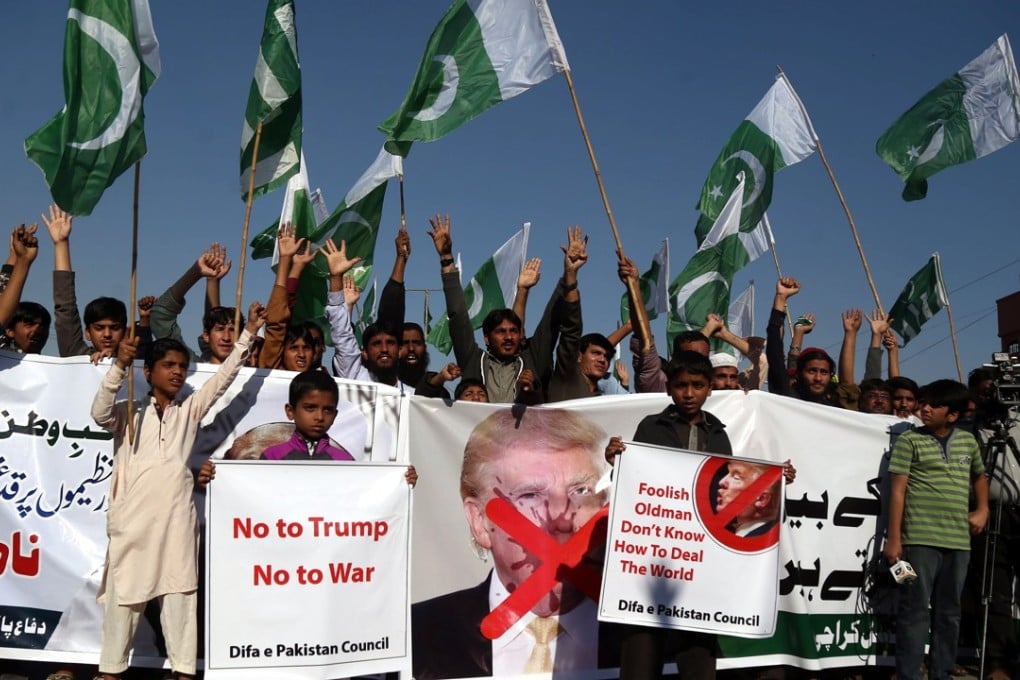Thank you Trump: that tweet was just what China needed to tame Pakistan
US president’s outburst and Washington’s decision to punish old ally comes at an opportune time for Beijing, which has been facing uncharacteristic pushback from Islamabad

Alongside his provocative tweets about North Korea, Trump opened the year by letting fly at Pakistan, which he attacked for not doing enough to root out jihadists.
“The United States has foolishly given Pakistan more than US$33 billion in aid over the last 15 years, and they have given us nothing but lies and deceit, thinking of our leaders as fools,” Trump wrote in his first tweet of the year. “They give safe haven to the terrorists we hunt in Afghanistan, with little help. No more!”
Why China is caught in India-Pakistan crossfire
Islamabad reacted sharply, summoning the US ambassador to complain and calling the tweet “completely incomprehensible”. The Pakistani government also blamed the US for “great insensitivity”, breaking the “trust between two nations built over generations” and negating “decades of sacrifices made by the Pakistani nation”. The White House responded by suspending all military assistance.
Apart from the US$255 million in foreign military assistance the US suspended on August 31, all financial aid to buy US military equipment now remain suspended. The Pentagon’s budget for fiscal year 2017 amounts to US$900 million for Pakistan. The total amount of US aid that could be frozen as a result of the suspension could well be over US$1 billion.
Trump’s tweet reflects his growing frustration with Pakistan for not properly tackling the Haqqani network and the Afghan Taliban, the two militant groups that have successfully defied Washington’s counterterrorism efforts in Afghanistan. However, it remains unclear what exactly Trump’s comments will achieve.
What do you get if you cross Pakistan’s game of thrones and China’s Belt and Road?
Islamabad is unlikely to yield as it considers these organisations strategic allies, vital to lasting peace in Afghanistan. It is just as unlikely to decisively uproot the infrastructure of insurgent groups, such as the Jamaat-ud-Dawa (JuD), which form the core of its alleged policy of using non-state actors against India.
